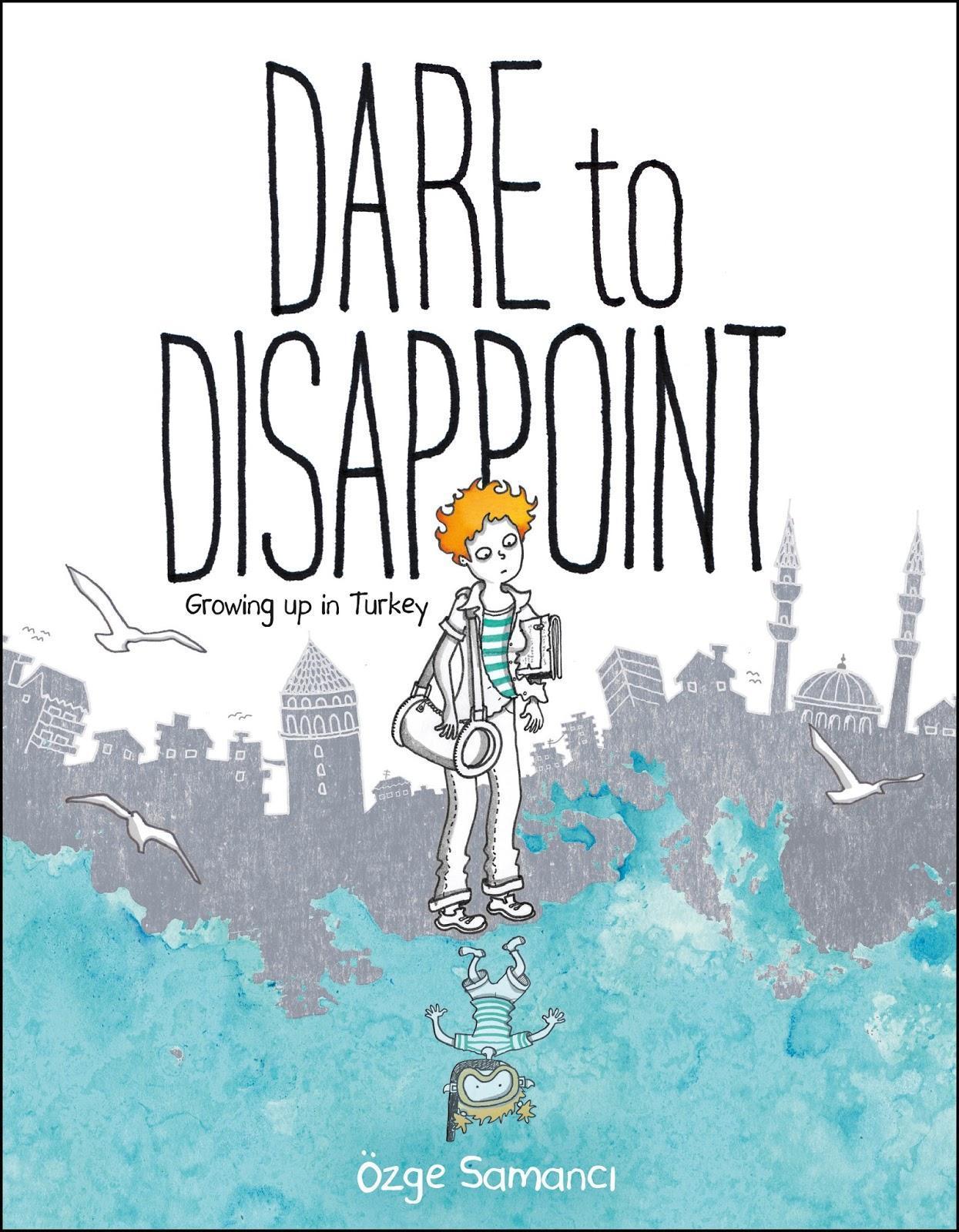“Dare to Disappoint,” a graphic novel depicting growing up in Turkey from the 1970s, fits more wisdom into fewer pages than many more self-consciously learned books. Writer and illustrator Özge Samancı strikes a delicate balance of angst and humor, creating a winning formula full of charm and wit. The book is currently only available in English (a Turkish version is in the pipeline), but it has already sold well in Turkey. For both locals and outsiders there is plenty to enjoy.

Much of its popularity in Turkey is probably down to Samancı’s presentation of the unique quirks of life during the years she describes. Readers nod along as they recognize details from their own childhood. Posters for warring left-wing and right-wing factions are pasted onto walls in the background during the turbulent 1970s, though of course Özge is too young to understand any of them. Elsewhere we see glimpses of Bruno Amadio’s ubiquitous
“The Crying Boy” portrait - no doubt baffling to outsiders but amusing to locals in Turkey.
But generally the tone of the book is inclusive. The local color will be familiar to anyone who has grown up in Turkey, while its protagonist’s anxieties will be familiar to anyone who has grown up at all. Samancı describes her experiences in a liberal, non-religious lower-middle class family in the western city of İzmir. There is pressure to excel academically as the only route to a secure future, and there is also pressure from an overbearing society. Both are recognized by Özge’s father when he warns at one point: “In this country, if you are a woman and you don’t have a job, you are zero, nothing, nothing!”
Things are easier for Özge’s older sister Pelin, who sails through school with high grades and few of her sibling’s insecurities. She ends up qualifying to study computer engineering at the prestigious Bosphorus University, while Özge later studies mathematics at the same university – much to the chagrin of her father, who wanted her to enter the engineering department. Despite falling in love with the relaxed and open atmosphere at Bosphorus University, as a student Özge struggles academically and with personal troubles. Samancı presents serious issues with a lightness of touch, but the novel includes episodes of genuine trauma, including an attempted rape on the college campus.
Her social observations are drolly perceptive. “The ways Turkey dealt with the issue of religion reminded me of our broken radio,” a confused young Özge remarks at one point. “When I turned the knob just a little bit it was too loud. There was no in-between.” Pictures of the Turkish Republic’s secular founder Atatürk are ubiquitous, but a deep well of social conservativism is also inescapable.
The book balances a basic modern Turkish history lesson with a poignant bildungsroman describing Özge’s journey of self-discovery in a tough world. Generally the illustrations are minimalist, full of white space and restrained lines. At times they reminded me of illustrations in my high-school French textbook, but at other times it is creative and full of surprises: Maps, diagrams, doodles, ink stamps, pasted in objects.
Overall “Dare to Disappoint” is quirky without being irksome; whimsical but with a wise center; delicately judged and never overwhelmingly heavy. It ends with not so much a twist, but a rewarding revelation. The overall effect is life-affirming in a quiet, understated way.
*Follow the Turkey Book Talk podcast via iTunes here, Stitcher here, Podbean here, or Facebook here. ‘Dare to Disappoint: Growing Up In Turkey’ by Özge Samancı (Farrar Straux Giroux, $17, 189 pages)
‘Dare to Disappoint: Growing Up In Turkey’ by Özge Samancı (Farrar Straux Giroux, $17, 189 pages) Much of its popularity in Turkey is probably down to Samancı’s presentation of the unique quirks of life during the years she describes. Readers nod along as they recognize details from their own childhood. Posters for warring left-wing and right-wing factions are pasted onto walls in the background during the turbulent 1970s, though of course Özge is too young to understand any of them. Elsewhere we see glimpses of Bruno Amadio’s ubiquitous “The Crying Boy” portrait - no doubt baffling to outsiders but amusing to locals in Turkey.
Much of its popularity in Turkey is probably down to Samancı’s presentation of the unique quirks of life during the years she describes. Readers nod along as they recognize details from their own childhood. Posters for warring left-wing and right-wing factions are pasted onto walls in the background during the turbulent 1970s, though of course Özge is too young to understand any of them. Elsewhere we see glimpses of Bruno Amadio’s ubiquitous “The Crying Boy” portrait - no doubt baffling to outsiders but amusing to locals in Turkey.